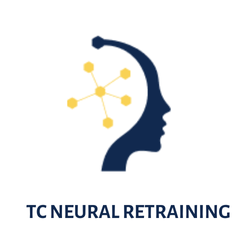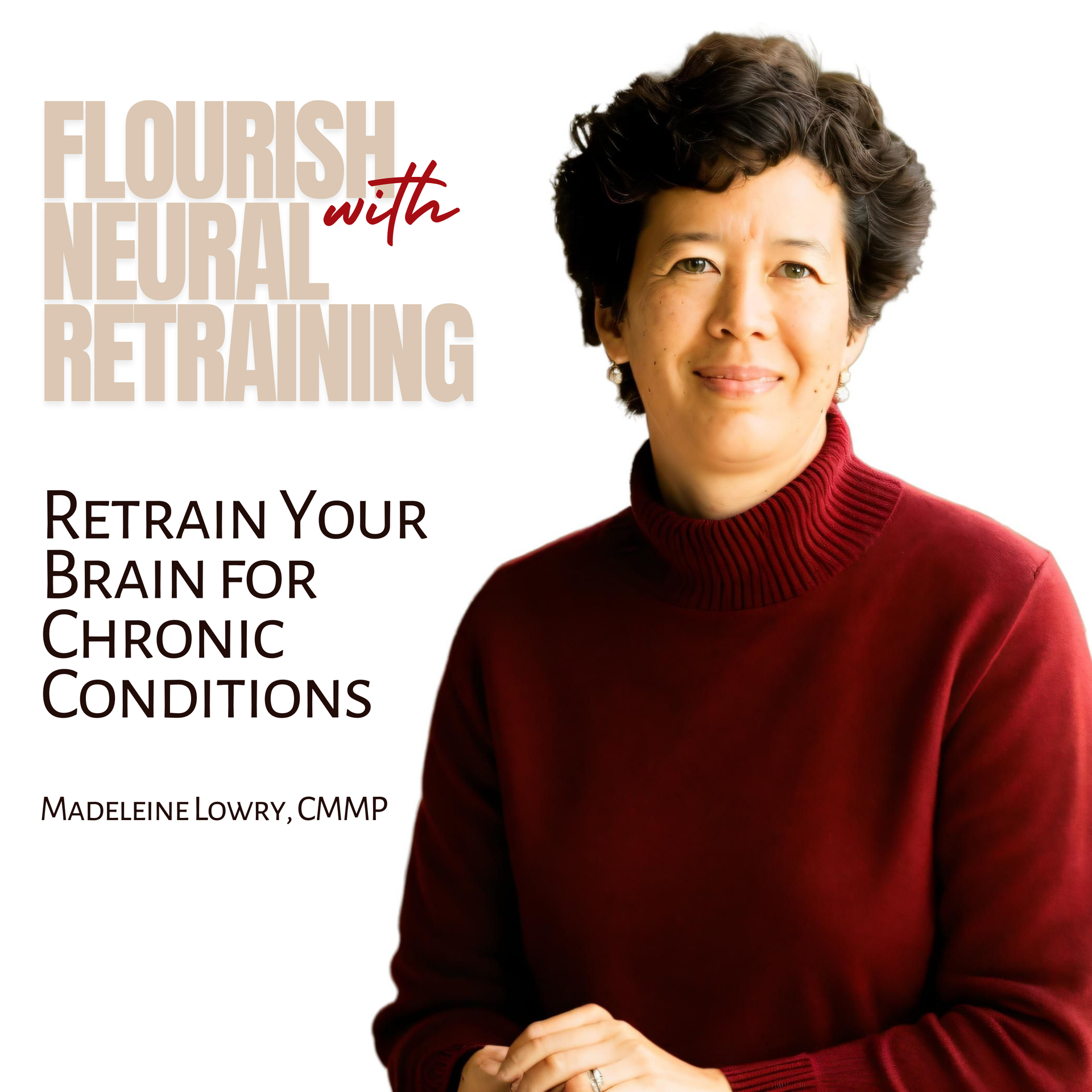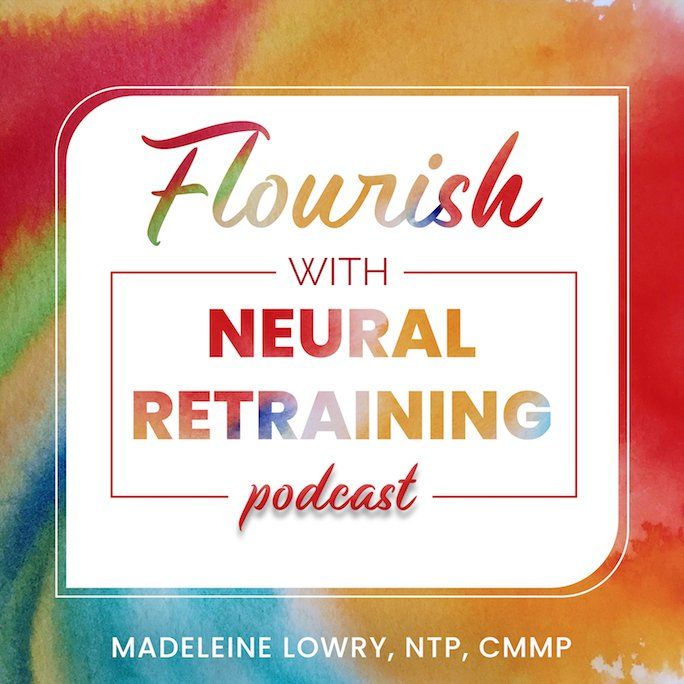Brain Retraining for Chronic Fatigue and Hashimoto's
Flourish with Neural Retraining Podcast, Episode 85 - A Listener's Guide
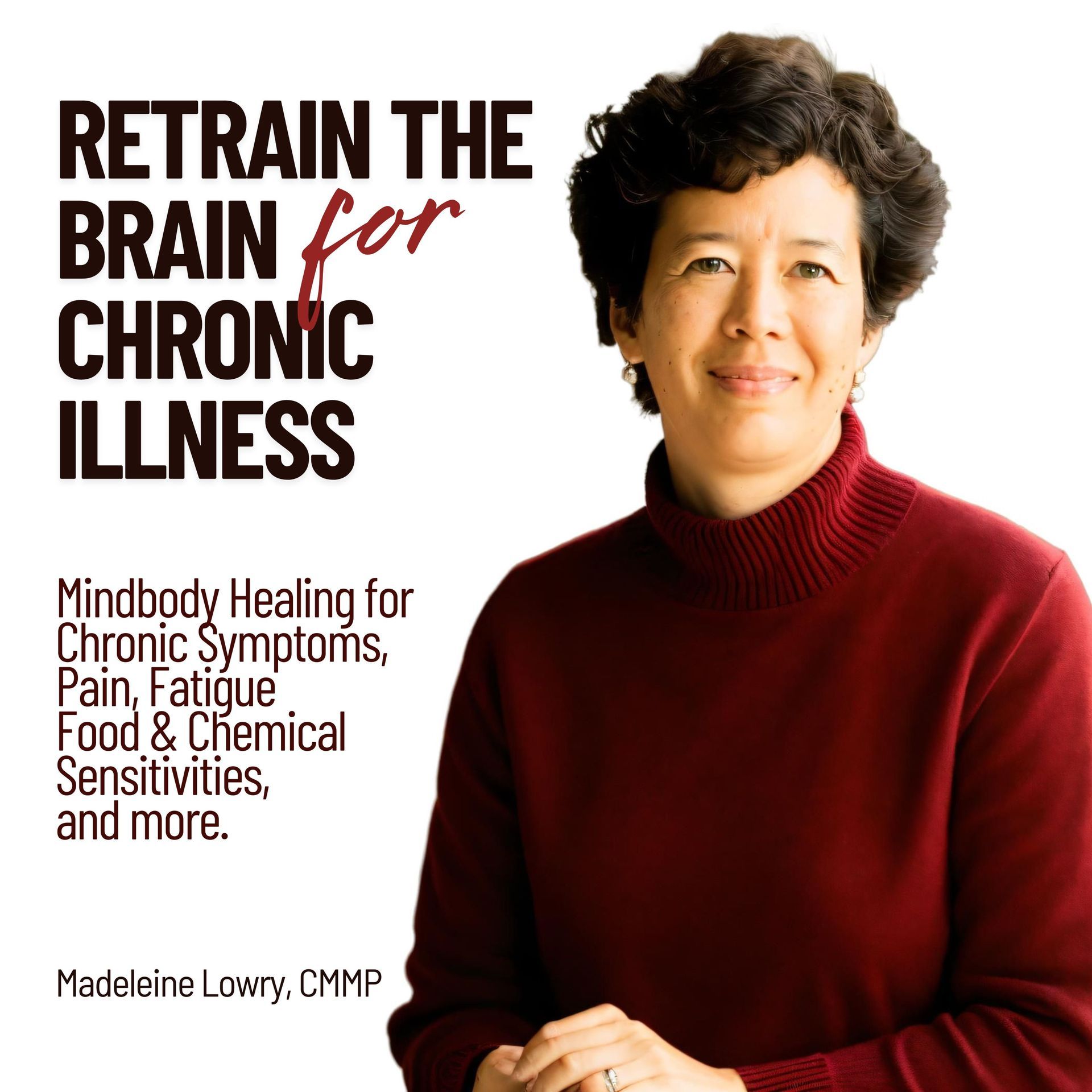
Listen to the podcast episode
In This Episode
- Learn how subconscious brain retraining helped Janet overcome years of chronic fatigue, Hashimoto’s, and stress-related exhaustion without changing her meds or diet.
- How getting to the roots of chronic stress can improve overall health, including chronic hypothyroidism.
- Why Janet chose this method of subconscious brain retraining for its speed and efficiency.
Show Notes
Are you struggling with chronic fatigue, Hashimoto’s, anxiety, or unexplained exhaustion that no diet, supplement, or lifestyle change seems to fix?
In this inspiring episode, Madeleine Lowry, neural retraining specialist, shares Janet’s remarkable journey of overcoming debilitating fatigue through advanced brain retraining at the subconscious level.
Unlike traditional methods that rely on endless practice, affirmations, or repetition, this approach works directly with the subconscious mind to release the stress patterns and emotional imprints that fuel chronic symptoms.
Janet describes how, after years of “freight train fatigue days” that left her drained and hopeless, she experienced a profound transformation in just six sessions.
Without changing her thyroid medication or diet, she regained steady energy, emotional balance, and a renewed sense of joy and freedom. This powerful case study shows that rewiring the brain for healing is possible—even when medical solutions fall short.
If you’re ready to explore a new approach to chronic fatigue syndrome, autoimmune conditions, anxiety, and stress-related illness, tune in to discover how subconscious brain retraining can help you calm your nervous system, resolve hidden stress patterns, and reclaim lasting vitality.
Discover how advanced neural retraining can support your emotional, mental and physical health. Visit our website to schedule a free consultation or register for a group session for managing life stress: TCNeuralRetraining.com
Full Transcript
Note: generated by AI, accuracy not guaranteed.
(Intro Music)
[Madeleine Lowry] Are you navigating the exhausting reality of chronic fatigue, persistent in pain, anxiety, or sensitivities that seem to defy every solution you've tried. Many, like my guest Janet, find themselves perpetually drained and struggling to get through each day or facing debilitating fatigue that forces them to cancel plans and put life on hold. If you have been diagnosed with conditions like Hashimoto's and find that even with medication and lifestyle changes, you still don't have the energy and vitality that you need, you understand the deep frustration, the feeling of being stuck, and the yearning to simply get yourself back again that Janet was experiencing.
Janet's journey perfectly illustrates this common struggle. For years, she battled these overwhelming freight train fatigue days, sometimes several times a week, even after retiring from a stressful nursing career, which revealed her fatigue wasn't solely work-related. She, like many listeners, had tried everything she could possibly try. This often leaves people feeling Feeling like a failure and distressed by the time and resources invested without lasting relief. I know this feeling well. I'm Madeleine Lowry, a neural retraining specialist for chronic health issues and the founder of Twin Cities neural retraining.
In this podcast, we'll be talking about a new approach to chronic fatigue, an advanced neural retraining method. Unlike basic brain retraining methods that rely on conscious effort, daily homework, and repetitive exercises for months or years, years. Our approach works directly with your subconscious mind. It's a practitioner guided process where the rewiring and change happen gently and quickly during the session with no practice required.
This method understands that the stress patterns that lead to chronic symptoms like fatigue are often held in the 90% of your mind that operates below conscious awareness. And by addressing them directly, we can achieve faster, more fundamental shifts. Our work involves gently guiding your subconscious mind to find and neutralize deeply embedded patterns, memory structures, and associations that contribute to your chronic symptoms and stress responses.
Janet experienced this as magical, feeling like a big eraser was being used to clear the emotional charge from overwhelming feelings, even from unexpected past baggage that made complete sense to her as it emerged. This is not talk therapy. Instead, you quietly listen to verbal instructions while your subconscious mind does the work, revealing connections and allowing you to release what you've been holding on to, often for decades.
The results can be truly transformative. After just six sessions, Janet is no longer struggling with fatigue, and her life is more enjoyable. She now experiences a steady level of energy throughout the day, and any dips quickly resolve. A stark cont to her previous freight train fatigue days. What's remarkable is that this profound shift occurred without any changes to her thyroid medication, supplements, or diet. She feels happier, more reliable, more satisfied, and has truly gotten herself back again.
If you are struggling with chronic health issues, fatigue, anxiety, or sensitivities, and are ready for a new, more empowering approach to healing that goes beyond repeating scripts and affirmations, then Janet's story demonstrates the power of brain retraining at the level of the subconscious mind.
Listen until the end if you are seeking to calm your nervous system, resolve stress at its root, and unlock a lasting sense of well-being and vitality. Let's get started.
All right, so Janet, I'm so pleased to have you join me for this podcast episode. Um, and I'm so excited to have you share your story with working with me and the MAP Method and you know how it's helped you.
[Janet] Yes, thank you.
[Madeleine Lowry] Yeah, so let's start with you know how did you hear about this method? This is a very little known method. So how did you learn about it and what made you think yeah you know I'm willing to try that?
[Janet] Okay so my daughter has had um issues with health and she's tried several different um brain retraining methods that were not successful at all and then she found you and she had huge success. So I just went straight for you and um didn't try any other kind of brain retraining knowing that she had as much much success after she worked with you.
[Madeleine Lowry] Yeah. So you came to me after your daughter worked with me.
[Janet] Yes.
[Madeleine Lowry] Um but for for very different things.
[Janet] correct.
[Madeleine Lowry] So, what were you hoping to resolve with MAP sessions?
[Janet] So, with me, I really struggled with fatigue. Um, was diagnosed with Hashimoto's in 2016. Um, and struggled with fatigue and would just give into it. Would have I recorded it and I would have many days of just really having to work hard to get through the day. Um, and life wasn't as enjoyable knowing that I was always knowing that this fatigue was right around the corner. So, what my goal was in starting to work with you is to work with this issue of fatigue that I was dealing with for years.
[Madeleine Lowry] Okay. So, chronic fatigue was your main motivation.
[Janet] Yes.
[Madeleine Lowry] And so, what have you observed, you know, emotionally, mentally? physically. Um, after a set of sessions, I actually can't remember how many sessions we've done now. Maybe like between five and 10.
[Janet] Um, so six total.
[Madeleine Lowry] Okay. Six sessions. Okay.
[Janet] Yes
[Madeleine Lowry] Yeah. And not all of those sessions are were on the same topic, but
[Janet] Right. Right.
[Madeleine Lowry] I think we probably picked a different topic each time, but what have you noticed? What would you say the benefits have been for you?
[Janet] Um, huge with my um level of energy. I'm no not struggling with fatigue um and just life is more enjoyable because I don't have to shut down with my body and just give into not doing a darn thing because um I'm so tired that I can't um do what I'd like to do because I'm struggling with, you know, just trying to get through the day. For me, you know, it's been huge. as far as it's taken away my fatigue and it's given replaced by taking away the fatigue it's replaced in that place is more enjoyment out of life and and just feeling like I got I got myself back again.
[Janet] I got who I I'd like to be, not who I wanted to be. Um and I couldn't get there. So I feel like I I it helped me get um to a much better place.
[Madeleine Lowry] Yeah. So, when we first met, I think I remember you using the term freight train. Is that how you put it?
[Janet] Freight train fatigue days.
[Madeleine Lowry] Can you describe what you mean by that?
[Janet] Um, so it um I would just, you know, it would be like I would get hit by a freight train. It would just just knock me right over. It just I I just felt like I just got like flat Stanley just got crushed and that was it. And so I was like not um able to function um anywhere near to the percent of where I would like to function. It was just my battery was on such a low charge. I was just barely making it.
[Madeleine Lowry] And so these are days you basically had to cancel what you had planned.
[Janet] Yes. Right. And I would Yeah, I would just have to, you know, put everything on hold and and just put it off, you know, for another day. So, yeah.
[Madeleine Lowry] And how often do you think you were having those?
[Janet] I thought it was not as much, but once I started recording them, it was more. So, I would have sometimes it would be a couple times in one week. And now, so I worked full-time my whole career as a nurse and I retired um in two um two years ago in June in 2023. So I thought oh once I retired I would have because my job was stressful I wouldn't have these I still had them even when I was retired. So um that was a huge eye opener too. It wasn't just related to the stress of my work. It was not even associated with work, even with just having my own schedule because I no longer had to work. So, um, how long how many I'd have Oh, I would have it could be up to two in a week, which was, um, not good, debilitating.
[Madeleine Lowry] Yeah. Yes. And you said you had been dealing with this for a few years.
[Janet] Yeah. I was diagnosed with she us in 2016. So I I don't know um I don't know from 2016 moving forward to you know closer to now. Um if I can't remember specifically back then how it was but I know for sure within the last 5 years this has been something I've been struggling with for sure.
[Madeleine Lowry] Okay. So are you on thyroid medication for your Hashimoto's?
[Janet] Yes. Yeah.
[Madeleine Lowry] Okay. And so did anything change about your dose of the thyroid medication that made the change that would explain change?
[Janet] No, I my um that because I have my with my provider I she monitors those closely and my dose has stayed the chain has stayed the same. It hasn't had changes. I mean just a little bit of tweaks here and there but um no I've I've that's maintained the same. And as far as my overall health has been has been good.
[Madeleine Lowry] And so how do you explain you know well maybe you can describe what life is like for you now. So if that was the backdrop right these freight train fatigue days and these these were the worst of your fatigue days but you also tired even on the other days. Is that right?
[Janet] Right. Right. Right.
[Madeleine Lowry] Okay. So you've been dealing with that for several years. And how does it look to you? What is it like now being you?
[Janet] Um it just feels like um I got my life back again and it feels like I can be um like a more happier person. I can be more I I can be a more of a reliable person. I don't have to wonder is you know this going to happen and um I the unknowns are more not such a big what if in my life. So, I have um it's my life is much more manageable and happy and and content and um I I just feel more um satisfied.
[Madeleine Lowry] So, when you get up in the morning, you you have a more steady level of energy throughout the day?
[Janet] Exactly. Yeah. And and if I do have I mean, because everybody does. If I have a period of time I I can just have a little bit of a not doing a whole lot and and then I I get up and do something and I've got my energy right back where is in the past that would have ne that energy level would have never it would have been gone. It would have just just totally disappeared and that doesn't happen anymore.
[Madeleine Lowry] And when did you start noticing the shift? You said we've done six sessions. Typically we meet like every other week. So maybe we've been working together for like two months.
[Janet] Yeah. I I know. Um it just happened so gradual and I can't put my finger right on it, but I did the first three sessions with you.
[Madeleine Lowry] Yeah.
[Janet] And I was I know I was noticing improvement, but it wasn't like I thought I think we can get better yet. So then that's when I signed up for another three sessions with you.
[Janet] So I know by end of session five I you know I would say I was at um like I got myself back again.
[Madeleine Lowry] and that's amazing right because
[Janet] Oh yeah
[Madeleine Lowry] I think a lot of people out there with chronic fatigue who've been dealing with that for months and for years you know would be very glad to know that there was something they could do for themselves that would improve their situation right? We didn't change your meds we didn't change diet. We didn't do anything else. We just did
brain retraining sessions.
[Janet] Right. Right.
[Madeleine Lowry] Yeah. And I think it's probably it would probably be very surprising for people who are struggling with chronic fatigue and who have a diagnosis like Hashimoto's which would seem to explain right their chronic fatigue. Uh that that you can work with your mind and see improvement in that symptom even though we didn't we haven't done anything. about your Hashimoto's. Right?
[Janet] Right. Right.
[Madeleine Lowry] Yeah. I mean, I I do have clients I I'll just say this. I do have clients that work with me over a set of sessions much like you and then for other reasons, you know, they're getting labs done at the doctor and they will report back to me, oh my my thyroid labs are looking better. Um so, you know, I've se I've seen that happen, but as far as we know, that hasn't happened for you, but your chronic fatigue is better.
[Janet] Yeah. Right.
[Madeleine Lowry] So, yeah. So, that's that's kind of encouraging and maybe a little bit surprising, right?
[Janet] It's surprising! And and very encouraging. Yes.
[Madeleine Lowry] Yeah.
[Janet] Yes.
[Madeleine Lowry] And so, how would you describe what it is that we work on in sessions? You know, I'm just I'm just trying to think like from the point of view of someone who's listening to this and they're thinking, "Wait, I have chronic fatigue or I know somebody who has chronic fatigue, but what are they doing in these sessions? that's making the difference, right?
[Madeleine Lowry] Do you remember your first session?
[Janet] Oh, I do. I remember it as clear as day because I thought it was all about me and it was performance and I was huge doubting Thomas and I I'm all about, you know, um achievement and I'm was like, okay, I know I want to get my fatigue better and have it go go away and what can I do to make it better? And I came talking to you and I said, I don't know that this is going to work. I would felt very strong about that because it's like I've tried everything that I can possibly try and um I don't know how doing this is going to work because I've I've tried everything that I can do. So then when you gave me the um the information that you read before your first session and and you have and I'm a visual person.
So when I saw the the graph or the mountain and it and it shows um It's the 9010 and 90% of your um thoughts or sub is something that you have no control of. 10% is you do. And I thought, well, that makes perfect sense because if I could have controlled this, I definitely would have done ABC D and had this taken care of. No, no, I wasn't able to. So, that put it into perspective. And then sitting with you um and um It made me think of because how you talked about it, it explained it to me.
Um, I used to go to a chiropractor and he did muscle resistance testing and I know how that worked and he would test me on something and I had absolutely no um ability to resist him and you know push my arm against him. So I just did that analogy with you and you would say are you ready? And it's like okay and There was nothing I was doing. It was all my subconscious. And I just let my visual person, my visual part of myself think that what you were doing with our sessions was reaching that part of me that I couldn't reach. And I just let everything go and just did the sessions and listen to what you were saying. And and it's it's just kind of like magic is what I have to say.
[Madeleine Lowry] Yeah. Yeah. I remember that session. too. Um, so let me unpack this a little bit for people who are listening who are like, "What what is she talking about? What mountain?" There's there's a little video, right, that everyone watches before they come to their very first session. And this is a little 15-minute video. It's meant to be educational. It's meant to start to prepare your subconscious mind for the terms that we're going to be using in sessions. And the metaphor that we use there is an iceberg.
[Madeleine Lowry] So there it's like think of your mind as like an iceberg and you know, here's the waterline and just like a real iceberg, right? That the the part that you see above the waterline is just the tip like you said, the 10%, right? So, we're only uh of all brain activity, right? 10% is our conscious thought, the thoughts that we're aware of and 90% is under the waterline. It's like all the things that are happening in your mind that you aren't aware of.
And this is where all the patterns are held, right? The subconscious mind is a a pattern mind.
[Madeleine Lowry] Um And so when we have a pattern like chronic fatigue or like a symptom pattern or like a pain pattern or if we have a pattern that's like an emotional response pattern like um people who get anxious in response to a certain kind of trigger or situation. If we have a mental or behavioral pattern where um certain kinds of situations will send us into you know rumination patterns or negative inner critic pattern. patterns or worry loops, compulsions, perfectionism, things like that, right? Personality traits like perfectionism or people pleasing. Like these are behavioral patterns as well as mental patterns. And and so these are the kinds of patterns that we work with in map sessions because when we can work directly with the subconscious mind or at the level of the subconscious mind, which is what we are doing with this technique called map, then we can make changes faster, right? Because like you said, like the mind is only aware of this of so much. But
[Janet] right
[Madeleine Lowry] but the reasons that this experience keeps repeating for you over and over again is related to many things that you are not aware of. And so in these sessions we just basically work with the subconscious mind to we we harness the power of the subconscious mind to to find the reasons for the pattern and to to change it. Right? We have the opportunity to change it too. So yeah, that's that's basically what we were doing in our sessions. But I remember the first session you had a technical problem. Do you remember?
[Janet] Oh, I had it was awful. It was awful. And I felt like the biggest failure in the world. And I thought it was the end of the world. And it was I was just like I was just in tears. I was it was it was like the worst case scenario. Like the world had come to an end. Yes. It was Yes. 100%.
[Madeleine Lowry] I remember very clearly. Because you had been trying to get on the Zoom call. We had a 1-hour session.
[Janet] Yeah.
[Madeleine Lowry] And and and I think I was sitting there. I was waiting for you and I maybe you were emailing me saying like
[Janet] Yes, I did like probably 20 times.
[Madeleine Lowry] Yeah. Like, uh oh, she's she's trying to she's trying to get here. Um but somehow the technology wasn't working for you and you couldn't find someone to help you. And uh By the time you got on the call, maybe 25 minutes into the time frame, you were very shook up, right? Is that is that fair?
[Janet] to say? Yes.
[Madeleine Lowry] You were very shook up and I and I thought, okay, this is a perfect thing for us to work on, right? Because we could just say you were stressed.
[Janet] Yes.
[Madeleine Lowry] And and so what I want people to understand is like the the way, you know, so you were coming to work on chronic fatigue and I like let's work on how you're feeling right now, you know, um trying to get on the Zoom call, right? Feeling like a failure and like the world is ending and like, you know, so frustrated, right?
[Madeleine Lowry] Um and upset and and because because what I understand is that the way you are responding in this situation, um the stress here is just I can't make this work, right?
The way you respond in this situation, it has there are elements of this that are, you know, the way that you respond in any situ any stressful situation, right? So, there is um you know, stress patterns are um they're common, right, to different kinds of stress. So, I thought here she's very worked up. She's she like you were about to cry.
[Janet] Yes.
[Madeleine Lowry] And um and I thought, okay, like it's all here. All the patterns are right here. Why don't we just work on this. Right? And so, we kind of worked on harnessing the power of your subconscious mind to figure out what was behind this. Why did you feel this way? Why, you know, what was it that made you feel so helpless and so powerless and so upset and distressed and like the world was ending, right? This had a meaning for you beyond like, "Hey, I can't get the Zoom thing to work." Right.
[Janet] Right.
[Madeleine Lowry] It was like something about it was Yeah. It was very very dire for you.
And and you know what I've learned is like if this is how this feels for you right here, right now around this current source of stress. This is ringing a bell going back to other events, other experiences you've had in your life where you have felt the same way. So, let's, you know, while this is all right here, right now, let's just have your subconscious mind look through all of that, right?
[Madeleine Lowry] Find all the all the memory structures that make up this pattern. And basically what we're doing is having, you know, each round of instructions is about asking us conscious mind, you know, to find the the the memory structures that are involved and the associations and to neutralize them. You know, we keep we keep doing that. We keep doing that. We keep doing that. And I remember you saying to me, well, it's like I'd say, well, how does it feel now? And how does it feel now? And how does it feel now? Right? Because we keep having you rate your level of distress as you, you know, reflect on what just happened to you that 25 minutes when you couldn't get on the Zoom call and how how much distress is that causing you now? And so, you keep giving me numbers, right, from 0 to how that was feeling.
[Madeleine Lowry] I remember at one point you said it's like you've taken a big eraser, a big eraser to the memory and now it just feels like I don't know. How would you describe how it felt after we worked on that?
[Janet] Um it felt like, oh, I didn't know how to get on. It's okay. Um we just have to figure this out. And um you know, I I didn't feel like a failure. I didn't feel like I I should have known this. It was like that like I had a weight lifted off of me. Um I didn't know how to do it, but that was okay that I didn't know how to do it and I shouldn't um have, you know, I like I didn't have to have an burden added on to the fact that I I didn't know how to do it. So it felt just like, oh, I didn't know how to do it. That's okay. Whereas there was nothing okay about it. When I when I finally was able to get through to you, it was all, you know, a negative thing and and it wasn't that way at the end of our session.
[Madeleine Lowry] Yeah. Yeah. So, I think a lot of people can relate to that. You know, maybe not about trying to get on the Zoom call, but just things in our lives that we're trying to make happen and they're not happening for us. Even as simple as like I'm trying to resolve my fatigue and I have tried this and this and this and this and it's not happening for me. Right?
[Madeleine Lowry] Many people come to me like you, they've tried so many things and you know here I am it's like the 10th the 12th thing 12th thing that they're trying and they're you know in some way they're like you at the beginning of Zoom call right they're so frustrated and so distressed you know they feel like a failure and you know they really like they have regrets over I don't know the re the time the money the resources they've invested trying to get their health back, right? And they're in that really, I don't know, kind of a trapped or stuck place, right?
And they their mindset is like, I I can never get myself out of this hole, right? It's like,
I don't know. I've just been dropped in a hole and I I've been doing all the things to get out of this hole. I I have a perfect diet. I have a perfect sleep routine. I have a perfect, you know, this and that. I take all the supplements and all the medications, but it's just not happening for me,
right? And so that that can that alone can be your source of stress. So no matter what it is, you know, technology failure or your own health or something else, something work related, something relationship related, maybe you're a caregiver for someone, you know, that is a subject you can bring to a session and it it helps like it makes a difference.
So, do you want you want to say anything else about the experience and what maybe someone who's never experienced this before might want to know before they decide to sign up for a session?
[Janet] Um, well, I can say 100% you explained everything to me. So, I wasn't questioning anything because, you know, I'm a really detailed person and again visual. Well, you the video was a a huge help for me. Um, and you know, you know, and coming into the session being so stressed. I didn't come in thinking like I was um did something bad or something wrong. I didn't come I didn't feel like ashamed because you know I should have known how to do this technology and heaven forbid what's wrong with me. So I I didn't have any of that feeling of of wow what was the matter with you Janet? I didn't have any of that and and just the whole um working with you again because my conscious person thinks, well, like you said, I've done this. I've done my diet. I've done my exercises. I've done my sleep. I've done my supplements and medications. So, there is no way that this is going to work because I've done everything I can. But again, that's only 10%. So, 90% that's really big.
And sitting with you during sessions and I would have never thought about the stuff that was um came to mind when we had our sessions. Um things that I I would have never thought to even talk to you about, but when we were in our sessions, it it brought up stuff from the past that was baggage. And I would have never even thought to even consider talking about any of that baggage from you know, way back when I was, I don't know, 10 to 15 and I'm 67 now. You know what I mean? So, it brought back stuff that I would have never even thought that was even necessary to talk about, you know, and but going through all that and talking about that, it it just it just made complete sense. It just was like streamline. It went from I'm listening to you, we're talking, it brings back this memory We walked through it. We talked through it. And And yeah, I it just was it was I don't know how to say it other than it's hard to explain unless you've go through it. And I just have to say it's it was a it's an amazing change for a positive for me.
[Madeleine Lowry] Yeah.
[Janet] Yeah. Yeah.
[Madeleine Lowry] So I I want people to understand that um it's not talk therapy. Right.
You don't you don't have to talk about your stuff. I just need to know what it is you want to work on and how that makes you feel and rate your emotional intensity 0 to 10. Um, and there isn't a lot of talking going on during this session, but because we are working with the subconscious mind, sometimes when I'm instructing you, I'm offering instructions to your subconscious mind and you're sitting there with your eyes closed, breathing slowly, deep deeply and gently uh just like you're meditating, things sort of like pop into your mind, right?
[Madeleine Lowry] For some people it's uh a memory comes to mind or a person or a word or a thought. For other people it's like more like a sensation or like an emotion. So things are coming into your mind if you're quiet and you're paying attention much like you're meditating. You know, like when you meditate, you kind of close your eyes and you focus on your breath and you notice the thought coming through. your mind, you're supposed to like let it go, right? Go back to your breath. Well, it's similar. I would say it's similar when we're doing map sessions, but this is an opportunity when your mind is quiet and you're just hearing me talk to your subconscious mind. It's an opportunity for you to notice, right? For you to observe what is coming up for you. Because this is your subconscious mind and it's starting to show you the connections, starting to show you like why is it that this uh that this problem seems so dire for you. What is it that's happened to you that's made this experience sort of encoded that way?
[Madeleine Lowry] Some people don't have anything to report after each round of instructions and some people have a lot to report. Either way, you know, we as practitioners know how to work with that. But it can be a pretty fascinating process. You start to understand yourself better.
[Janet] Right. Right.
[Madeleine Lowry] Right. And you start to realize, oh, this didn't come from nowhere,
[Janet] right? Yes.
[Madeleine Lowry] Yeah. But but but also this is something I've been holding on to, right?
For like way too long, right?
[Madeleine Lowry] Yeah. Because the patterns the patterns are conserved in the subconscious mind. The subconscious mind doesn't see any reason to change them. It's not concerned about your happiness. It's concerned about your survival. The subconscious mind is like, "Well, but Janet survived. Look, she's 67 now. We're doing a good job, aren't we?"
[Janet] Yeah. Right.
[Madeleine Lowry] But so it it takes it takes doing this process of like you know picking a subject and working on it and noticing what comes up and being like oh yeah I think it has something to do with you know what happened when I was 12 or the way I in my family of origin that we we looked at things right kind of the mindset that I got from you know my family what I learned or my family dynamic or society culture my religion whatever you know whatever influences are. Oh, and so now now you have a choice. It's like, do I want to keep this or do I want to let it go, right?
[Madeleine Lowry] And so with the method, you know, we we can start to change all of that. Basically, we are rewiring your subconscious mind for a new pattern, a pattern that's more supportive, more empowering for you instead of the old pattern that was keeping you in a place of stuckness.
[Janet] Yes. Right.
[Madeleine Lowry] Yeah.
[Janet] Right.
[Madeleine Lowry] And have you noticed I mean aside from the fatigue, have you noticed any other benefits?
[Janet] Um I would say just that I'm happier. I mean a lot happier knowing that I I don't have to deal with this and like it's something that I've dealt with for so long that it's gone now. So just more happy I would say. more more fulfilled with you know just daily life. I I don't have to um think oh no you know I have to have a total day of shutdown. So yeah
[Madeleine Lowry] and is this something that you would recommend to others and for what purposes?
[Janet] I definitely would recommend it and I I like how for for me and thinking I didn't know if it was going to work because I thought it was about my achievement and how I was going to make it work. Uh-uh. It's not that. It's it's like you say, it's it isn't a lot of talking. It's me listening and um like you say, it's the meditation and the whole breathing and just whatever happens in the subconscious. I can hear you talking and it's my subconscious that's doing the work. So, I would yes recommend it. And I would just have to say if I was going to tell somebody, you just have to um you have to trust the system and it Yeah, I would highly recommend it.
[Madeleine Lowry] Thank you. Yeah.
[Janet] Um when we were in session, I remember dealing with a lot of different emotions. Yeah.
[Janet] And just that things that you know, again, I wouldn't have thought that we were going to have discussed, but they came up in the session and I was listening and just having eyes closed and meditating and Yeah. Yeah. My subconscious was doing the work for me.
[Madeleine Lowry] Yeah. And that's that's a really nice thing about it. I think that most people are pretty pleased about how easy and simple it is to to participate in a session. You know, there's not a lot you have to do. You have to know what you want to work on. You have to report on the emotional intensity or like the changes and then you have to just give me a little feedback in between rounds of instruction. Um, and even if you say, "I didn't notice anything." That's okay. Like, I can still carry on, right? I have other other resources to fall back on like my own intuition. So, it's it I mean, would you agree that it's pretty pretty simple, pretty easy to be in a session to be a participant?
[Janet] 100%. And again, cuz I know my daughter did two of them and both of them required like a lot of homework for her. to do and that was like stressing her out even more and and we're a lot alike and
[Madeleine Lowry] Um Yeah. So, I'm glad you mentioned that the other brain retraining methods that your daughter tried because um I would say that those sound like they are basic methods of neural retraining. So, there are basic methods and they're advanced methods and I would put MAP MAP is an advanced method. neural retraining, right? We're working directly with your subconscious mind. These are practitioner guided sessions and the rewiring happens in the session, right? So, you can feel the difference from the beginning to the end, you know, um whatever subject that you that you chose to work on.
Other basic methods of brain retraining which more people are familiar with require lots of practice, right? There's like practicing scripts and affirmations and exercises and visualizations for maybe an hour every day and and this is quite timeconuming and the reason I call them basic is because they are designed about around using the conscious mind to try to make a change in the subconscious mind.
[Madeleine Lowry] That is a long road, right? You could be doing those exercises for months and years. But when we work directly with the subconscious mind, things happen faster, right? No practicing needed. We didn't didn't give you homework. There is no homework, right?
You just you just show up for your sessions.
[Madeleine Lowry] Yeah. All right. Well, thank you so much, Janet, for sharing with me today. [Janet] Absolutely.
[Madeleine Lowry] Really lovely to talk to you. Yeah.
[Janet] Yes.
[Madeleine Lowry] If you like what you're hearing, please listen again. And remember to follow us and leave a review on iTunes or your favorite podcast app. Check out our free courses about retraining the brain for chronic illness at mapforhealth.us or schedule a free consultation or an introductory session at TCNeuralRetraining.com.
Content of this podcast copyright 2025 by Twin Cities Neural Retraining. Music by Barbara Benn.
Learn more
- Listen to more Flourish with Neural Retraining podcast episodes.
- Learn more about the MAP Method and How it Works
- Watch the Frequently Asked Questions videos.
- How the MAP Method effectively heals trauma.
- Check out our free course on the MAP Method and how it is used for mind-body healing
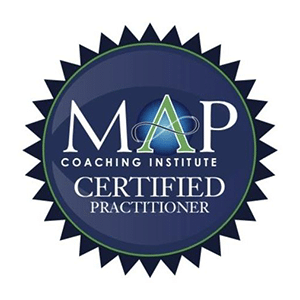

Madeleine Lowry, NTP, CMMP
Certfied MAP Method Practitioner
Madeleine specializes in neural retraining for chronic conditions. As a Nutritional Therapy Practitioner, she worked with many clients who were interested in eliminating allergies, sensitivities and intolerances. After learning a basic method and seeing its limitations, she trained in an advanced method of retraining the brain and now offers MAP sessions over Zoom and online self-paced programs for Anxiety/Depression, Sensitivities, Chronic Pain, Self-Healing, and COVID Long.
Related Posts

